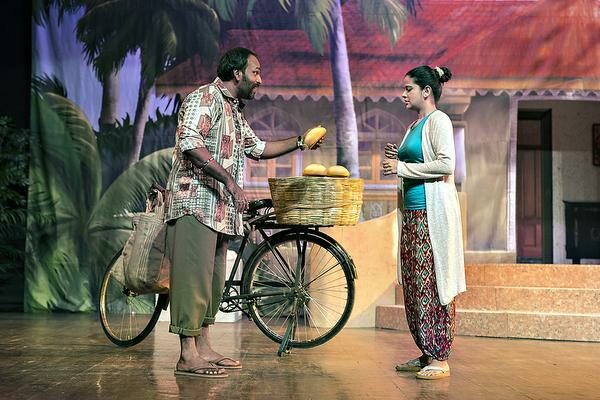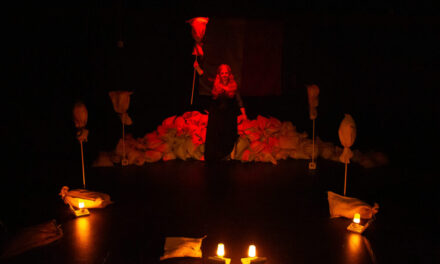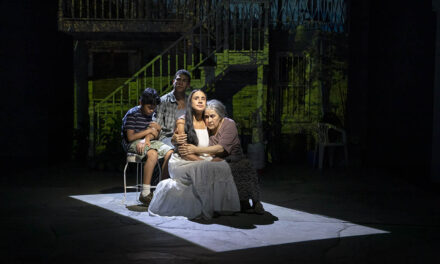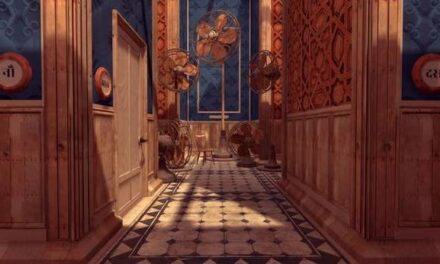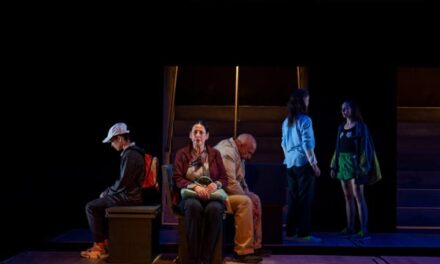Theatre director, documentary film-maker and screenwriter Sunil Shanbag found his stage voice during one of India’s most politically-charged decades, the 1970s. Eleven years after he was honed by master theatre director Satyadev Dubey, Mumbai-based Shanbag founded theatre company Arpana in 1985. Since then, Arpana has made a name staging contemporary and original works by Indian and international playwrights, with a focus on innovative use of theatre techniques, especially music. Shanbag often brings to the stage live music performances, something he discovered he loved doing when he first staged the iconic Cotton 56Polyester 84 (2006), a reflection of life in Mumbai’s mills. He followed this up in 2011 with Stories in a Song that featured Shubha Mudgal and Aneesh Pradhan.
In Loretta, to be staged at The Hindu Theatre Fest, Shanbag will use Tiatr, a musical theatre form of the Konkan coast that mirrors social issues. Written by Pundalik Naik and adapted in English by Milind Dhaimade, Loretta, set in Goa of the 1970s, will include music by a live band and side-shows that feature satire. Questions of identity and language lie at the heart of the story that involves Antonio Moraes, a wealthy landlord immersed in his love for Konkani, whose son Rafael returns from Bombay with his Anglo-Indian girlfriend, Loretta. Rafael is dismissive of Konkani culture, Loretta wants to learn the language to fit in and Moraes says she’d be accepted only if she did. Beyond these personal stories, the play questions issues of identity.
Excerpts from an interview with Sunil Shanbag:
What about Tiatr appeals to you? How much more effective is it as a stage genre?
My first experience of watching a Konkani Tiatr performance goes back to when I was a student. I remember being struck by the joyous energy of the performance, and the enthusiasm of the audience. The band, led by a simple brass section, brought an interesting Goan-Latin feel to the music. Yes, the performance style was old-world, amateurish by most standards, and the staging, basic. Most contemporary urban theatre folk would dismiss Tiatr as an outdated form, as do the Goan elites. But, what struck me even then, and more so now, was the power of the form to entertain, provoke audiences with socio-political satire, and celebrate a way of life. I was looking for a form in which political satire and social comment were organic and fundamental to its nature, and Tiatr is very much that.
Why did Loretta appeal to you? Does it reflect the cultural xenophobia of our times?
Loretta was written for this production. It is not an existing text that we adapted. Late last year, I spent some time in Goa working with celebrated Goan writer Pundalik Naik on the idea for Loretta. We were keen on cultural xenophobia and issues of language and identity forming the core of the play. Lorettawas born out of this — an Anglo-Indian girl looking for cultural roots discovers an idyllic Goan viallge (in the 1970s), and her loyalty and commitment to the culture is challenged on the basis of her knowing the local language. It is a perfect vehicle for a gentle satire.
How much of the portrayal of society holds true now, given the play is set in the 1970s?
The decision to place it in the 1970s was to give it a certain distance and objectivity so that we are able to see today’s extreme polarisation. I think we see the parallels throughout the play.
The Hindu Theatre Fest 2016
The Title Sponsor of the event is YES BANK. The Associate Sponsor is Telangana Tourism. The Merchandise partner is Focus Art Gallery. The Mobility Partner is Ola. The Gift partner is Terra Earthfood and the Event manager is evam.
This article was originally published on TheHindu.com Reposted with permission. Read the original article.
This post was written by the author in their personal capacity.The opinions expressed in this article are the author’s own and do not reflect the view of The Theatre Times, their staff or collaborators.
This post was written by Deepa Alexander - TheHindu.com.
The views expressed here belong to the author and do not necessarily reflect our views and opinions.

